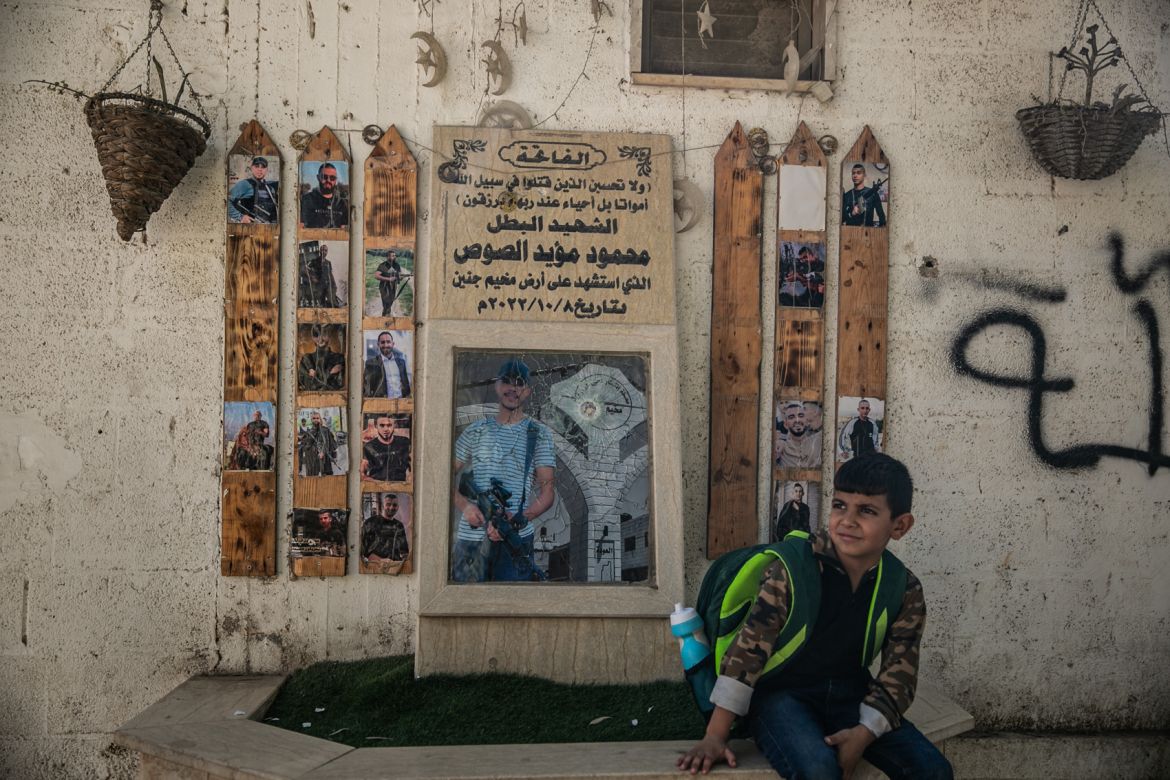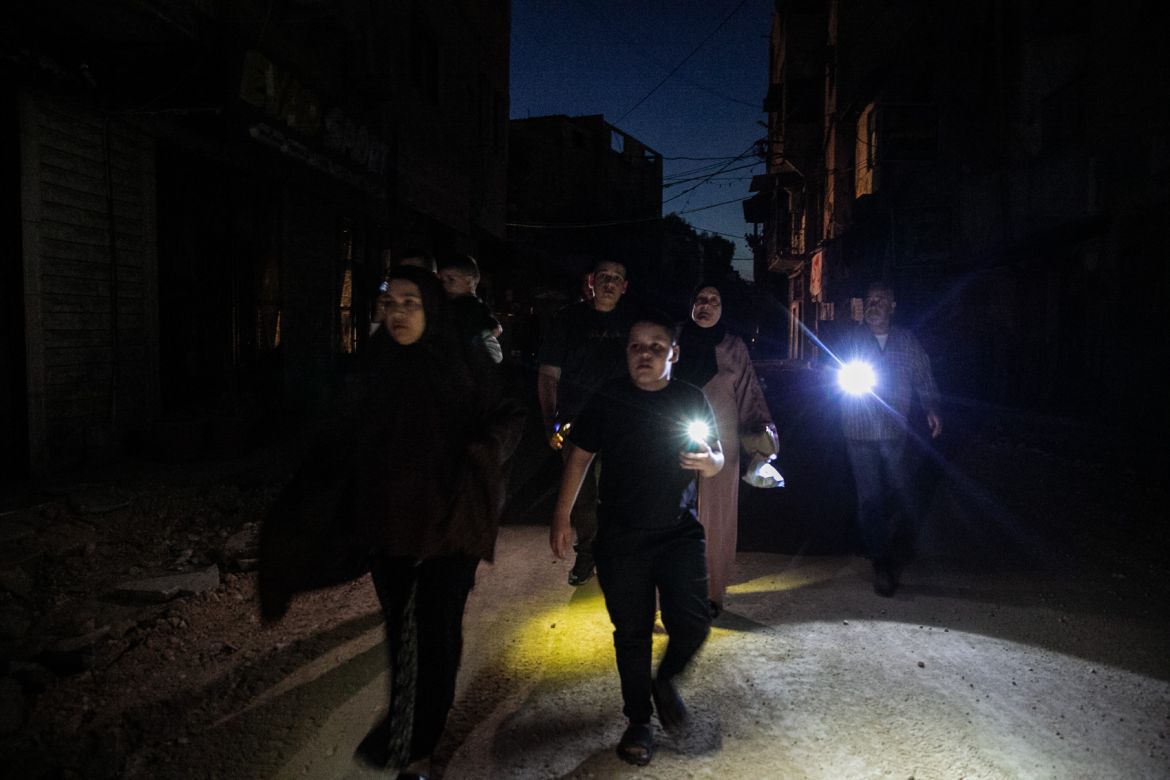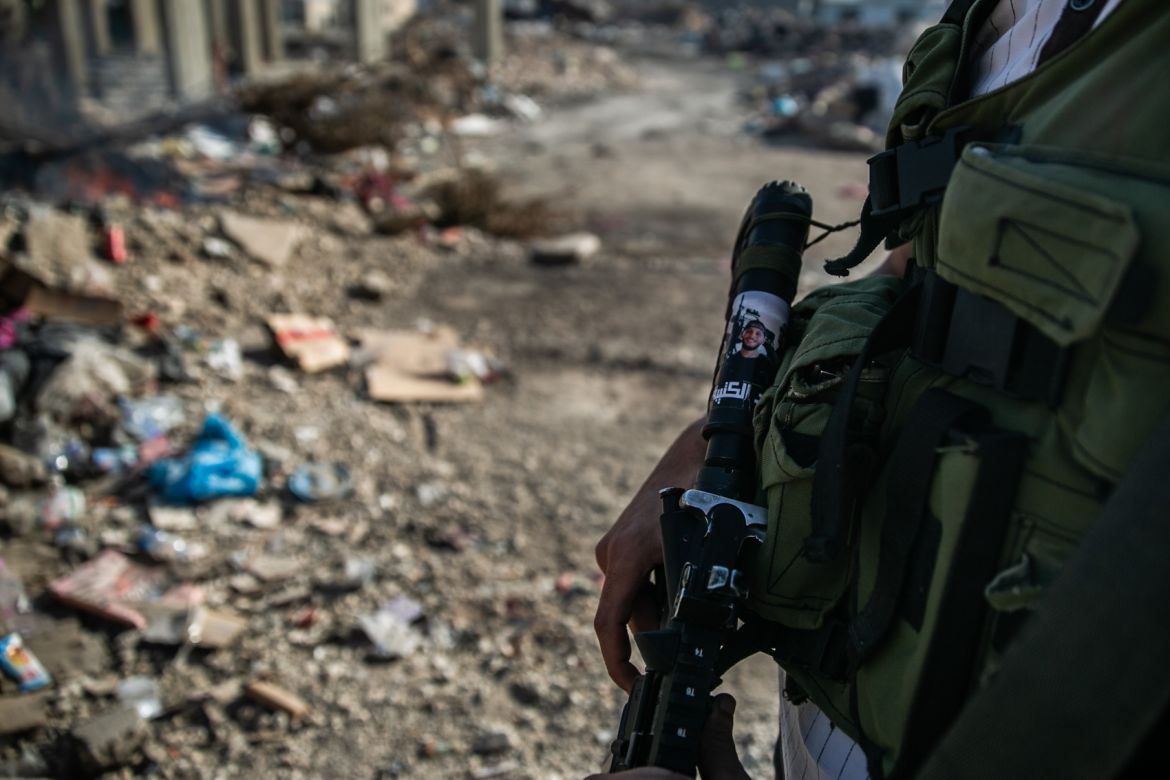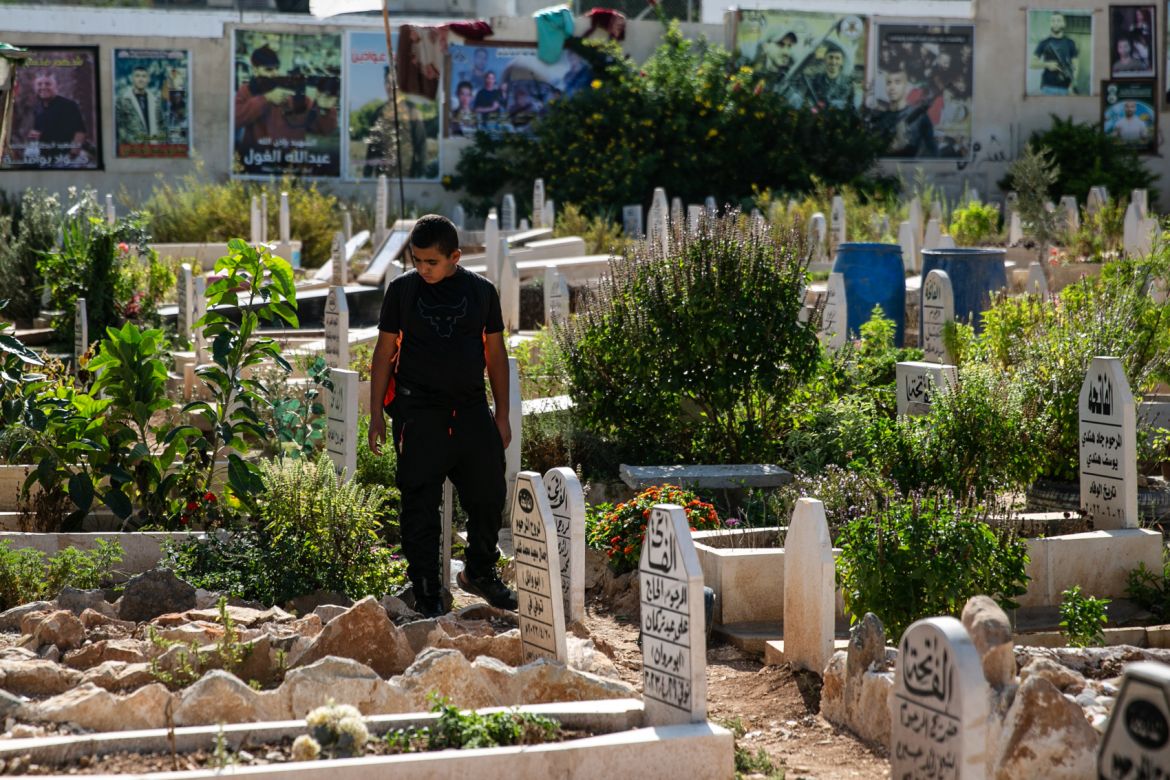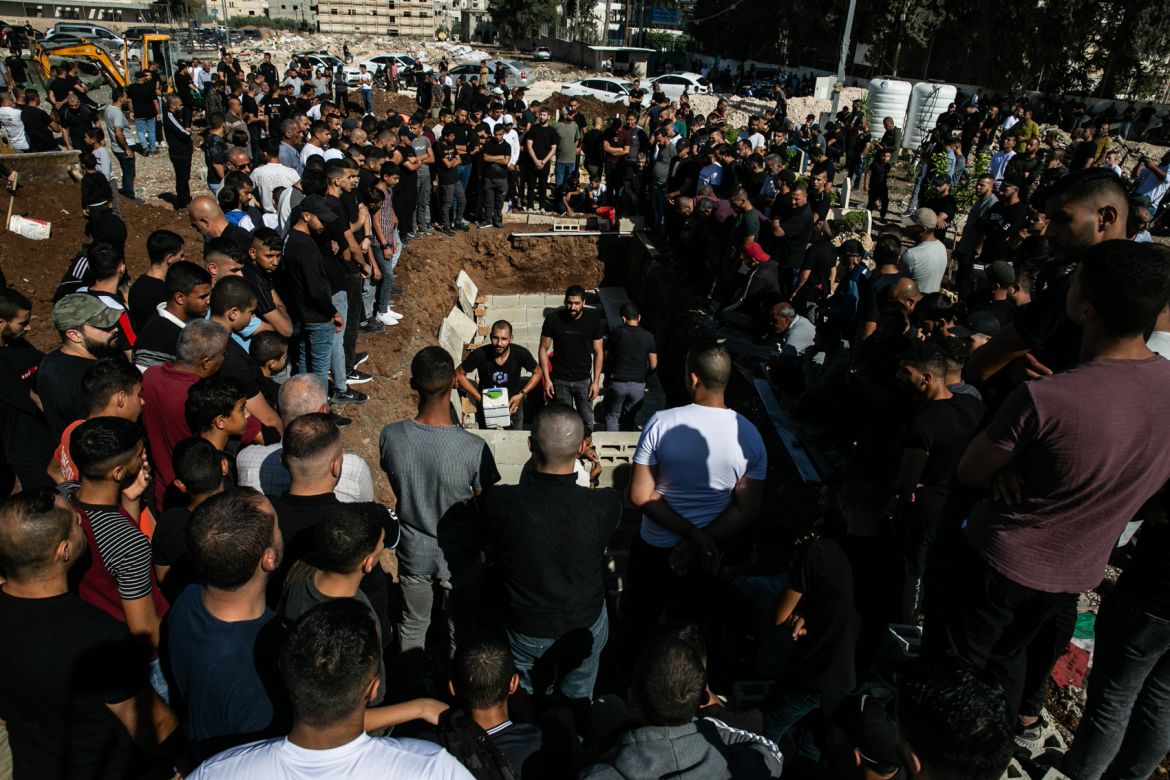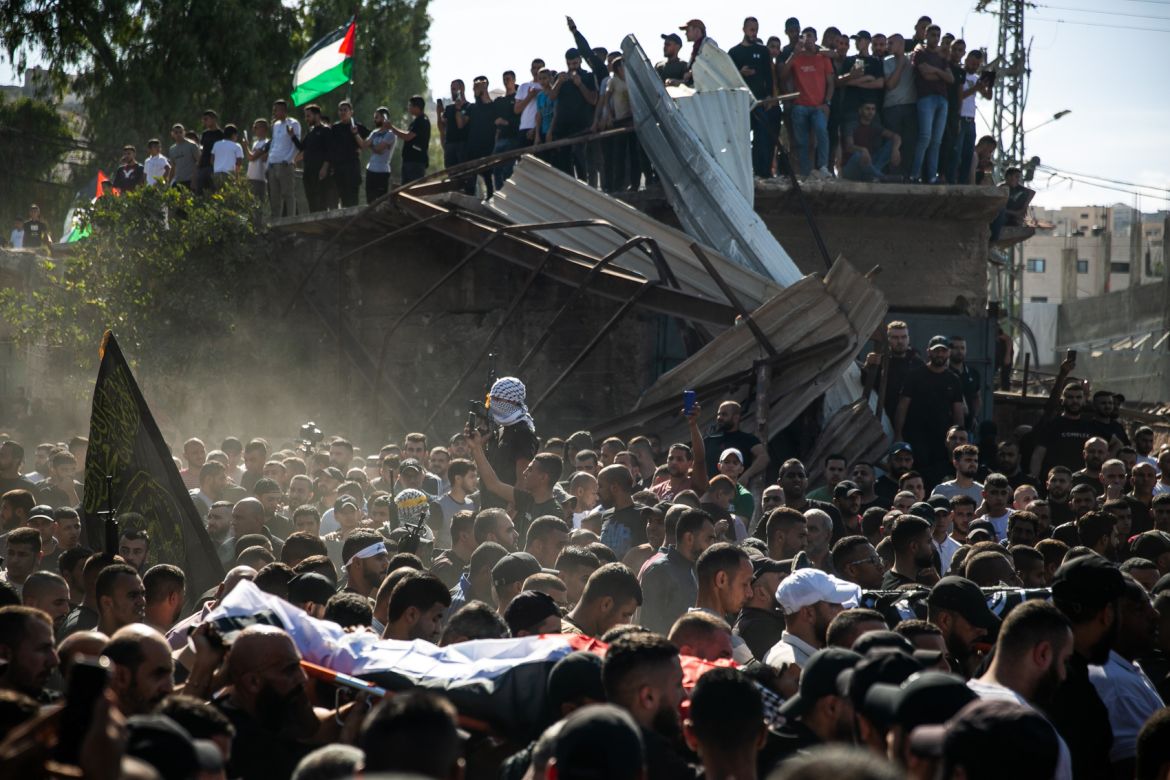Dim torchlights began to flicker as it got dark at 6pm on Thursday – the electricity had cut out in the afternoon.
Families carrying children picked their way through the streets of the Jenin refugee camp, attempting to evade crossfire during eight hours of non-stop shooting and drone attacks that had begun that morning when Israeli soldiers forced their way in with a large convoy of armoured vehicles.
After the Israeli army announced via loudspeaker that it would allow a window of just two hours for civilians to get out, people started to leave. But nobody knew how long the raid was going to last.
Many families fled to the hospital, looking for safety, while the fighting spread to the city centre and the Israeli army surrounded the camp.
Even before its big push into Jenin on Thursday, the Israeli army had been levelling the streets with armoured bulldozers for several days – during daylight hours and through the night. This was nothing new for the people of this camp. Since its establishment in 1953, it has been the frequent subject of raids aimed at destroying infrastructure and arresting Palestinians.
The latest fighting has left at least 14 Palestinians dead, some of them fighters. They have been buried among the tombs of other killed fighters following a large funeral procession on Friday that ended in the Jenin camp cemetery.
